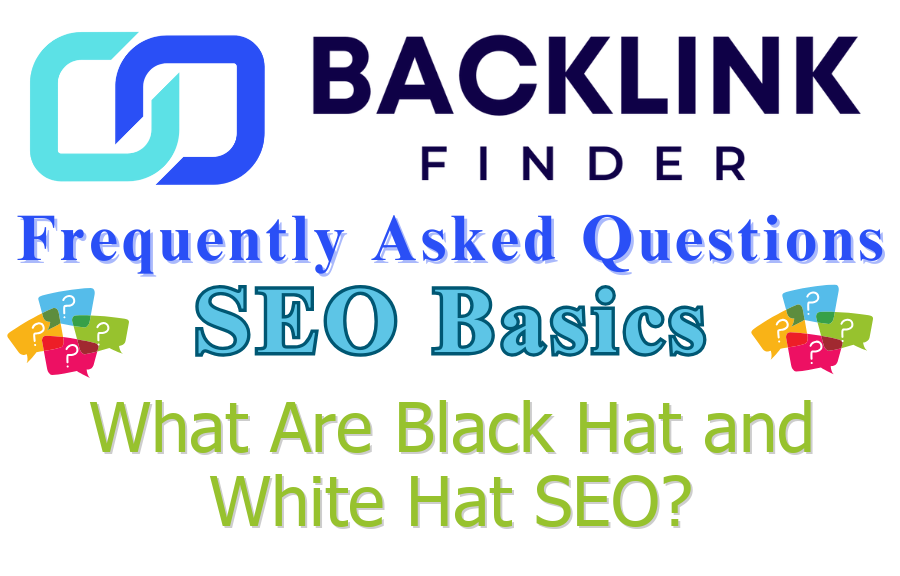What Are Black Hat and White Hat SEO?

In the world of Search Engine Optimization (SEO), two terms often spark curiosity: Black Hat SEO and White Hat SEO. These describe contrasting approaches to improving a website’s ranking on search engines like Google. Understanding their differences, risks, and benefits is essential for making informed choices about your site’s growth. This guide dives into what Black Hat and White Hat SEO mean, how they impact rankings, and why one approach stands out for long-term success, all tailored for beginners.
What Is White Hat SEO?
White Hat SEO refers to ethical techniques that align with search engine guidelines, prioritizing user value and sustainable growth. It’s about building a trustworthy site that search engines and visitors alike reward.
Key White Hat Strategies
- Quality Content: Create helpful, well-researched articles, videos, or infographics that answer user questions.
- Natural Keywords: Use keywords thoughtfully in titles, headings, and text to match search intent.
- Ethical Link Building: Earn backlinks through guest posts, partnerships, or content others naturally link to.
- User Experience: Ensure your site is fast, mobile-friendly, and easy to navigate.
Example: Writing a detailed guide like “SEO Tips for Small Businesses” and sharing it via a guest post on a reputable blog is classic White Hat. Tools like Backlink Finder, with its 400,000+ marketplace listings, simplify finding trusted guest post opportunities to build these links ethically.
What Is Black Hat SEO?
Black Hat SEO involves tactics that violate search engine rules to manipulate rankings quickly. These shortcuts prioritize short-term gains over user value, often leading to severe consequences.
Common Black Hat Tactics
- Keyword Stuffing: Overloading content with keywords (e.g., “SEO, best SEO, SEO tips”) to trick algorithms.
- Cloaking: Showing search engines an optimized page but users something unrelated, like ads.
- Hidden Text: Using invisible text (e.g., white keywords on a white background) to fool crawlers.
- Link Schemes: Buying low-quality backlinks or using private blog networks (PBNs) to fake authority.
Example: A site might stuff keywords into a blog post or buy 1,000 cheap links to rank for “best laptops.” If caught, Google could penalize it, dropping its rankings or removing it entirely.
How They Impact Rankings
Both approaches aim to boost rankings, but their methods and outcomes differ sharply:
- White Hat SEO: Builds a strong foundation. Quality content and ethical links earn steady, lasting rankings, with no risk of penalties.
- Black Hat SEO: Offers quick wins but invites trouble. Algorithms like Google’s Penguin detect manipulation, slashing rankings or banning sites.
Risks of Black Hat: Penalties can devastate your traffic overnight. A site banned for cloaking loses all visibility, forcing a fresh start.
Benefits of White Hat: It fosters trust with users and search engines, ensuring your site grows reliably over time.
Black Hat SEO might seem tempting for quick wins, but it’s a trap. Build for users with real value—White Hat keeps you safe and ranking long-term. https://t.co/5kPqX7yZvU— John Mueller (@JohnMu) August 3, 2021
White Hat vs. Black Hat: A Quick Comparison
Here’s how they stack up:
- White Hat SEO
- Pros: Long-term growth, user trust, penalty-free.
- Cons: Requires time and consistent effort.
- Black Hat SEO
- Pros: Fast ranking boosts (short-lived).
- Cons: High risk of penalties, loss of credibility.
White Hat aligns with what search engines like Google want: a web that’s valuable and trustworthy. Black Hat bets against the system, and the odds aren’t good.
Why Choose White Hat SEO?
White Hat SEO is the smarter path for most websites. It’s not just about avoiding penalties—it’s about building something lasting. For instance, a guest post secured through Backlink Finder’s marketplace can link to your content, boosting rankings while reaching real readers. Black Hat tactics, like buying links, might spike your rank briefly but risk everything when algorithms catch up.
Further Reading
- Moz: White Hat SEO Guide
- Ahrefs: What Is Black Hat SEO?
- Search Engine Land: Black Hat vs. White Hat SEO

